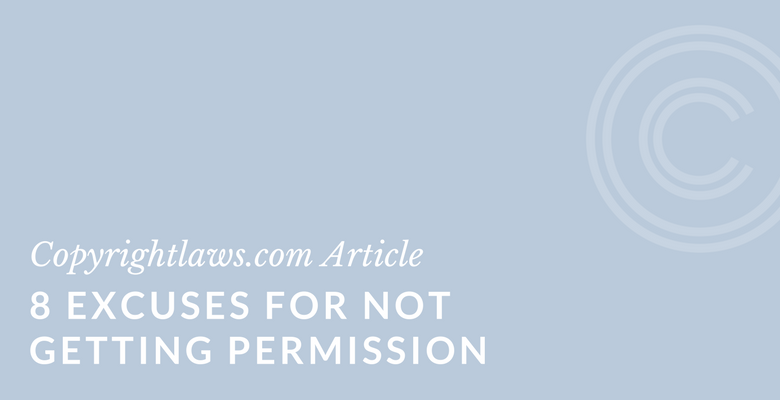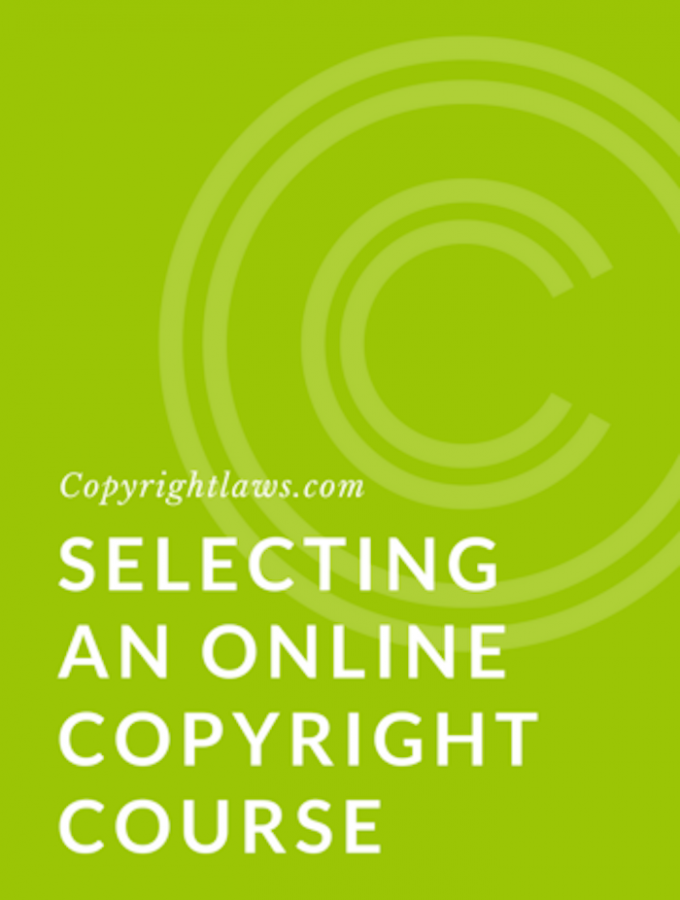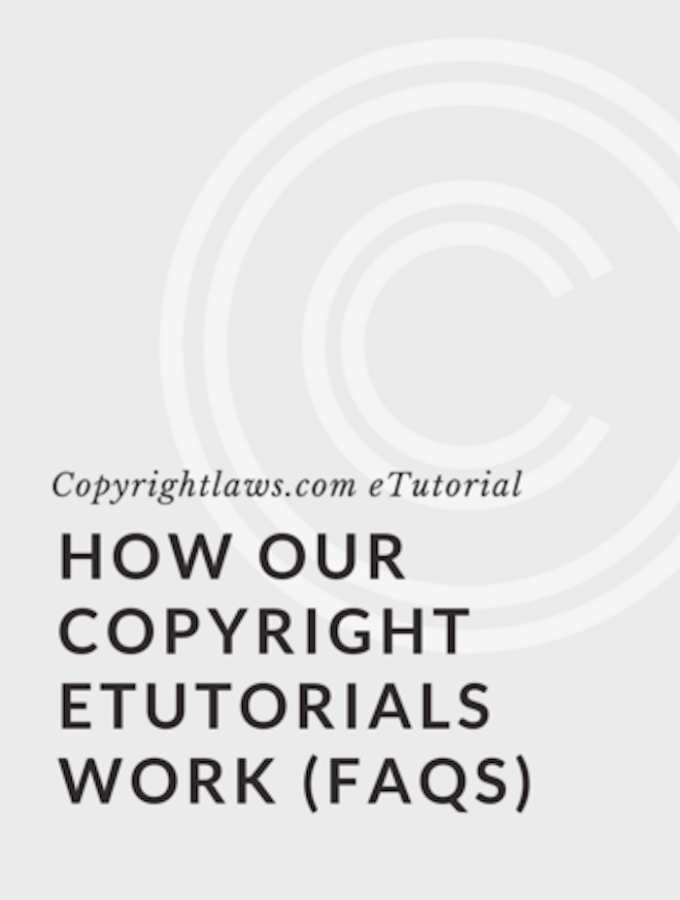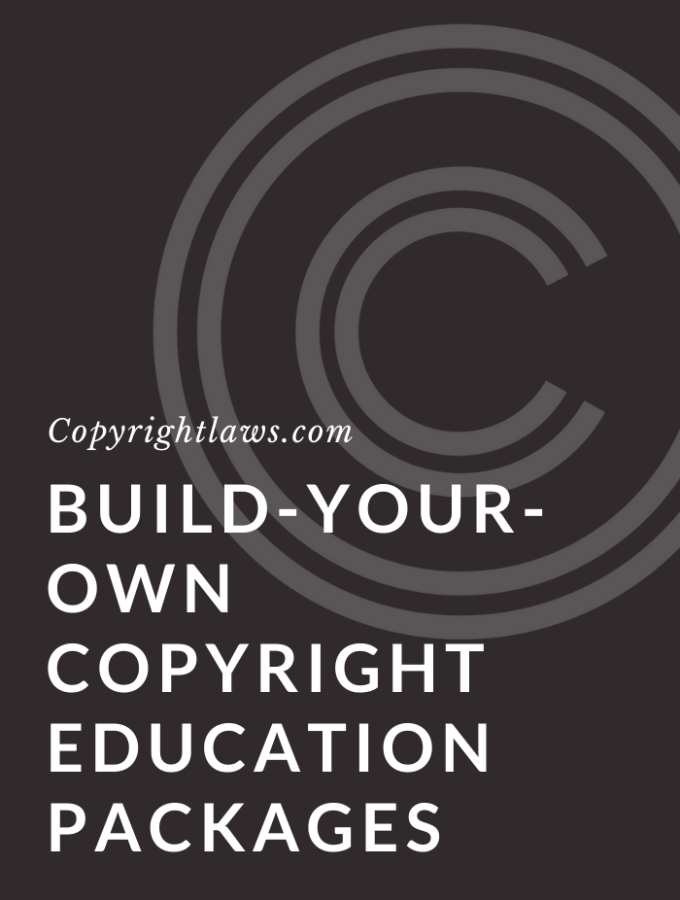Complying with copyright law takes copyright education, consistent application of the law and a go-to person such as a Copyright Officer to guide others in your library or business toward doing the right thing both legally and ethically.
Many think it's easier to make excuses for not getting copyright permission than it is to comply with copyright law. You can help others comply with copyright law and licensing agreements by debunking copyright myths and freeing them from their excuses to avoid copyright compliance.
8 Excuses (and a Bonus!) for Not Getting Copyright Permission
We've all heard excuses for not obtaining copyright permission prior to using a copyright-protected work. We may even have uttered some of the excuses set out below. Do you have a favorite excuse or one not mentioned below? If you're a Copyright Officer or Copyright Librarian, you've probably heard some or all of these excuses. Take the time to determine misinformation about copyright and correct those copyright myths quickly and frequently.
1. I found it online.
Not all online content is in the public domain. Always assume that online content is protected by copyright, even if it has no copyright symbol or notice. Then do your research to determine whether the content you want to use is protected by copyright.
TIP: As a best practice, every time you locate online content that you'd like to use in a presentation, book or otherwise, determine the copyright status of the work and whether you need to obtain permission prior to using it.
2. I was in a hurry.
Nothing in copyright law allows use without permission just because the consumer/user is in a hurry and must get a document to print or content included in a presentation. If you plan to use copyright-protected material, plan ahead. It may take some time to clear the rights you need.
TIP: A general guideline is to start obtaining copyright permissions six weeks prior to the use of the protected materials. And it's a good idea to have back-up material in case you cannot obtain permission to use the document or image you first hoped to use.
3. My boss told me to copy it.
If your boss didn’t provide you with a written warranty that they'll be liable if you get caught infringing, this may be the time to stand up to your boss. It's not easy to do, but this may in fact be the start of your new copyright compliance program at work.
TIP: How best to approach the topic with your boss? Try providing examples of lawsuits, or explain how it would actually make things easier for employees if they had some sort of written copyright policy to follow (which hopefully your boss will follow too!).
4. I’ll never get caught.
So, you know you should be obtaining permission. Everyone thinks they'll never get caught … until they do. With tracking software and copyright owners being more aware of legal and unauthorized uses of their content, it's becoming increasingly likely that you'll hear from a copyright owner when you use their content without permission (and without an exception in the Copyright Act).
TIP: Don't risk being caught by using content without obtaining permission or undergoing a risk analysis of copyright infringement.
5. It’s for education.
Not all uses for educational purposes fall within an exception in copyright law. Check the copyright act in your country; it may provide some special limited free uses for nonprofit education, plus fair use or fair dealing may allow some educational uses too. Don't just assume because your use is educational that you can use the content for free.
TIP: Fair use and fair dealing can be tricky to apply. Consider having a designated person or two in your organization who make judgment calls about fair use or fair dealing to avoid inconsistent applications of these important principles.
6. It’s for internal use.
Whether you're using content internally or publicly, you still need to obtain permission from the copyright owner. The same is true if you're publishing content on your private intranet instead of your public website.
TIP: Licensed content may have specific terms and conditions that allow or limits how you use that content. For example, the license may limit your use to internal purposes and not allow the posting of the licensed content on your website.
7. It has a Creative Commons (CC) license.
A CC license doesn't mean free. The content is subject to the terms and conditions in the CC license — read the license and see what’s allowed. There are six different licenses that allow different kinds of use. Each license clearly sets out what you may do and may not do with the content. Follow these terms and conditions that the content owner has placed on their online content.
Similarly with stock agencies, you need to follow the terms and conditions of use in the license you have with the stock agency. Just because you pay a monthly fee doesn't mean you have full and outright access to use images.
TIP: Click here to read more about the terms and conditions in CC licenses.
8. I emailed, called, faxed and snail-mailed the copyright owner but never received a reply.
This doesn't exonerate you from copyright liability. Unless the copyright owner provides permission, you may not legally use the content. Some countries have specific provisions for orphan works (works for which the author may not be found or located). The U.S. has no such provision.
TIP: If you're frustrated by orphan works, make a plan to use alternative content, such as existing third-party content or creating new content yourself.
And a bonus 9th excuse: I found it on Google Images.
Google Images is a search engine to locate appropriate images for your uses. The images in a search result are not necessarily in the public domain or free to use without permission from the copyright owner of the image. Like other content you find online, you should presume that those images are protected by copyright unless and until you determine otherwise.
Check out our tips on legally using images found through Google or other search engines.
What are excuses for not getting copyright permission that you've heard?
Let us know in the comments the most common excuses for not getting copyright permission that you've heard. And if you've heard any that aren't on our list, we'd especially like to hear about them!
Our Copyright Certificate programs provide you with an in-depth understanding of domestic and global copyright principles, plus practical tools and strategies you can customize to meet your particular needs.




